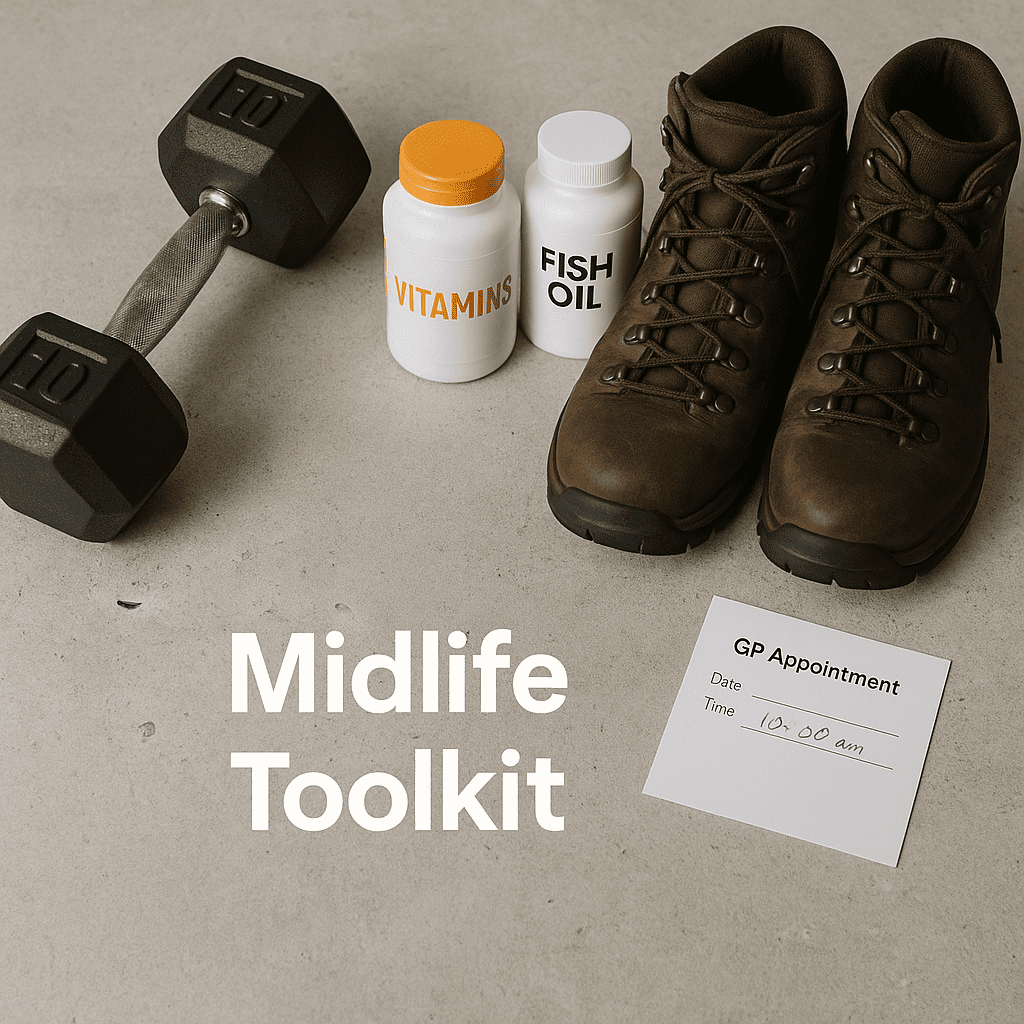The Diagnosis You Didn’t See Coming
Imagine this. You’re 38, your second marriage has just limped over the finish line, you’ve got more career changes than you have socks, and your Saturday nights now look suspiciously like scrolling on your phone with a glass of something strong.
Then one Tuesday afternoon, a doctor drops a bombshell. ADHD. Autism. Dyslexia. Maybe a combo platter for extra flair. Suddenly, your life flashes before your eyes – not in a Hollywood slow-motion montage, but in a chaotic highlight reel of bad decisions, broken promises, and moments you still lose sleep over.
It’s the moment you realise you haven’t been failing at life. You’ve been playing it on the hardest difficulty setting without the manual.
Why Men Get Diagnosed Late (and Why It Hurts More)
From the minute you can walk, you’re told to “man up.” Don’t cry. Shake it off. Get back in the game. So you do, masking your struggles behind jokes, workaholism, or the occasional ill-advised fling with self-destruction.
Healthcare systems aren’t much better. ND conditions in men are often overlooked unless they’re spectacularly disruptive as kids. By adulthood, you’re expected to have “grown out of it”, never mind that the symptoms have just evolved into job instability, relationship implosions, and the inability to remember your own wedding anniversary.
Fact you didn’t know: Studies show that men are, on average, diagnosed with ADHD five to seven years later than women, and often only after burnout, addiction, or divorce forces the issue.
The “Lost Decades” Syndrome
Ask any man diagnosed in his late 30s or 40s about the years before his diagnosis, and you’ll hear familiar patterns:

- Relationships in ruins – not because you didn’t care, but because you didn’t know how to regulate your emotions, explain your needs, or stop shutting down during conflict.
- Career carnage – quitting jobs on impulse, clashing with authority, or getting bored the moment things became routine.
- Self-medication station – alcohol, drugs, gambling, or overindulgence in sex, often used to fill the dopamine void your brain was quietly screaming about.
- Impulsive life choices – from buying that convertible you couldn’t afford to moving cities for a woman you’d known three weeks.
These aren’t moral failings. They’re the fallout of running on an ND operating system you didn’t even know you had.
The Shame/Symptom Tangle
A late diagnosis is like getting the director’s commentary for your own life – you finally understand the plot holes. But with that understanding often comes grief.
You replay every argument, every failed project, every person you let down, and you think, “If I’d known then what I know now…”
Here’s the trick:
- Shame says: “I’m broken.”
- Understanding says: “I was playing without the right tools.”
You can’t change the first 40 chapters, but you can absolutely make the rest of the book worth reading.
Why Some Men Resist Even When It’s Obvious
Plenty of men get hints about being ND years before an official diagnosis. A mate suggests it, a partner points it out, a quiz pops up on social media. And still… nothing.
Why?
- Fear of the label – “I’m not one of those people.”
- Worry it’ll make them seem weak or less masculine.
- The belief they can “just sort themselves out” without help.
- Not wanting to deal with the bureaucracy of testing.
Here’s the reality: avoiding the diagnosis doesn’t mean you’re fine. It just means you’re prolonging the confusion and chaos.
How to Stop Spiralling Once You Know
The first year post-diagnosis can feel like emotional whiplash. Relief, anger, hope, grief – all before lunch. And the temptation to “fix” your life overnight is huge. Don’t.
Instead:

- Start small – pick one area of life to work on first.
- Find the right professionals – therapists or coaches who understand adult ND brains.
- Join male ND spaces – online or in person, where you can talk without explaining yourself every five seconds.
- Audit your coping mechanisms – keep what works, ditch what’s damaging.
- Educate the people closest to you – they’ll need to learn just as much as you do.
The Dopamine–Destruction Connection
Let’s talk about the elephant in the man-cave: ND brains crave dopamine. That’s why you might have a history of risky relationships, binge-drinking, overspending, or taking career leaps without looking.
It’s not about having “no self-control”, it’s about your brain constantly searching for stimulation in a world that’s mostly designed for neurotypicals. Once you understand that, you can start finding healthier ways to get your fix without blowing up your life.
Why This Is a Plot Twist, Not a Dead End
If you’ve just had your midlife ND reveal, know this: it’s not too late. Men are incredibly capable of rewriting their story – once they know what they’re actually dealing with.
This is your chance to rebuild with the right blueprint. Your relationships can improve. Your career can make sense. Your self-respect can come back from the dead.
The diagnosis isn’t the end of the road. It’s the satnav update you wish you’d had years ago




